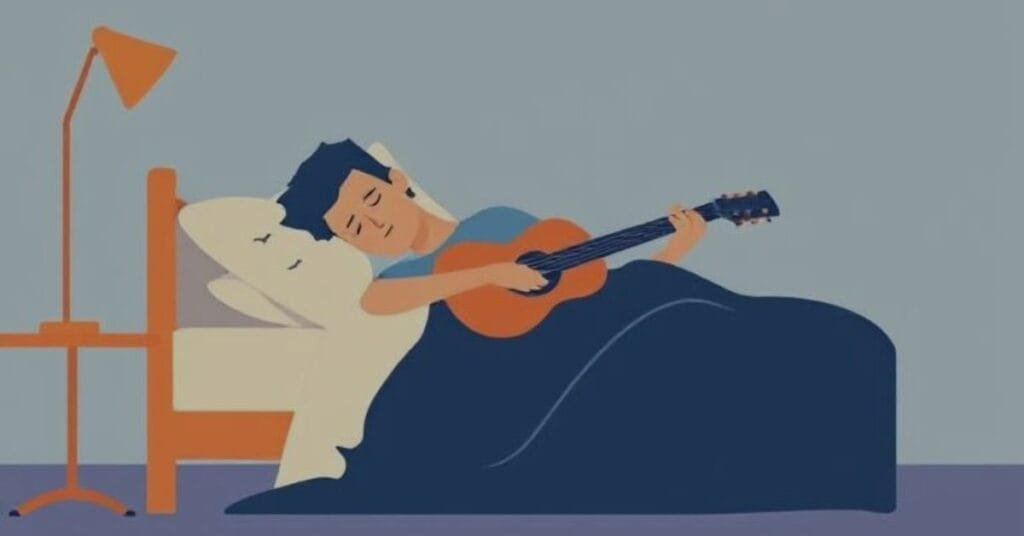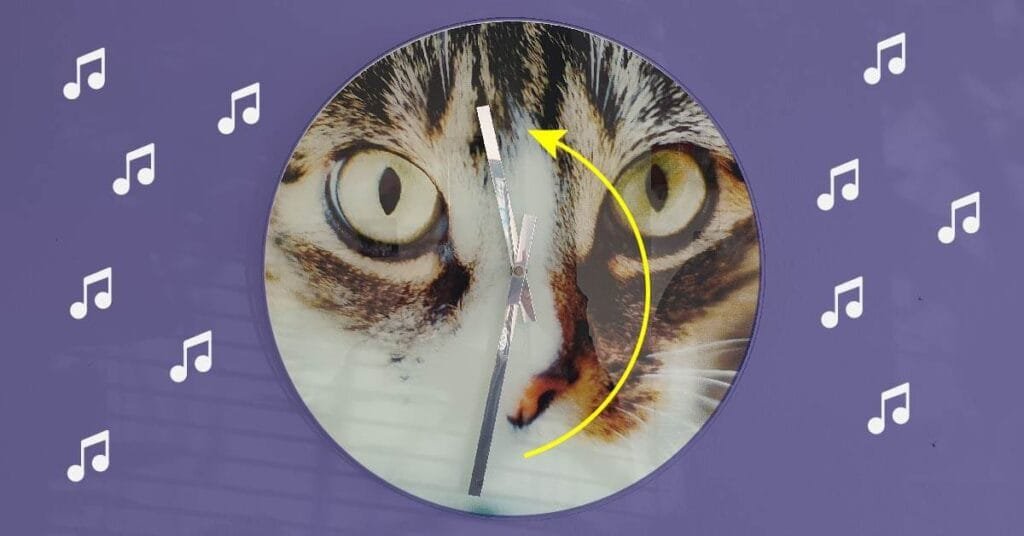The importance of sleep for musicians
In creating and playing music, the secret ingredient might be the amount of time we spend asleep. A flawless performance is not only a product of the amount and quality of practice and passion a musician has put into his or her career. Sleep time can elevate your performance to new heights or ruin everything you’ve worked for.
- Why quality sleep is important for musicians
- The musician’s profession: why is it different?
- How sleep affects musical performance
- How sleep impacts music education and practice
- Tips for improving sleep quality for musicians
- What to avoid before sleep
- Sleep and mental health in the music profession
- Conclusion
Why quality sleep is important for musicians
Sleep is not just recharging our batteries. It is an important factor that contributes to our overall well-being.
Being a musician is a specific profession. It needs the creative motor to go on and on. It also needs the mechanical motor, your body to work optimally. We know that being a musician who gigs constantly is not an easy job.
To have both those “motors” running smoothly, we need a balance of body and mind. This is where sleep is crucial. Quality sleep helps in cognitive functions and physical health. Add the odd hours we spend on stage, and then traveling home, and you’ve got yourself a mess if you don’t get enough sleep.
Sleep is not only important while playing gigs. It affects the way we learn to play and memorize new songs, rehearse for hours and hours, and organize our gear.
The musician’s profession: why is it different?
I am not saying that it is harder or easier to be a musician than any other profession. First of all, it’s not a 9 to 5 job. It’s not an 8-hour graveyard shift job either. So what is it then?
The main reason musicians get to play for other people is to entertain them, right? The better the band, the more money on food and drinks, mostly alcohol, gets spent. So the whole business is about entertaining people who work their daytime jobs late at night.
Musicians have a different work schedule time than most people. And they bring their work home, big time. Having a picture of this confusing schedule makes one think, when do musicians sleep?
How sleep affects musical performance
Performing music is affected by many factors. A well-trained, technical experienced musician with excellent muscle memory will almost always play the right notes at the right time. But that’s not all there is to it.
Sleep deprivation also affects the other nuances that make up an expressive performance. These other emotional factors are the ones that distinguish great artists from the average. I am mentioning this to emphasize that you can be the best performer, but if your sleep routine isn’t optimal, your musical skills might just not be enough for an unforgettable show.
Emotional stages are important, they help musicians express feelings like sadness and joy, but bad sleeping habits will bring in unwanted byproducts like anxiety and the ability to connect with the audience.
How sleep impacts music education and practice
Research has shown that quality sleep is linked to better memory retention which is crucial for mastering musical concepts. Musicians should invest some time learning how to incorporate new techniques and habits to be prepared for all the challenges of the music industry. Musicians with healthy sleep routines will be more prepared to learn and practice new material day after day.

The cognitive benefits of good sleeping habits play a major role in musical creativity where improvisation is the cherry on top of the cake. Coming up with new music is very hard without unlocking our full creative potential.
Tips for improving sleep quality for musicians
1. Relaxation techniques
Deep breathing exercises, meditation, and minor workouts can prepare the body for a good night’s sleep.
2. Consistency
If possible, a consistent bedtime routine plays an important role. Going to sleep at the same time gives a signal to the body that it’s time to calm down and be mentally prepared for sleep.
Coming home late at night or early in the morning is not an excuse for an inconsistent sleeping schedule. If you go to sleep later than others, rise later.
3. Sleep environment
Sleep hygiene needs an appropriate environment. A dark and quiet room is essential. If something is making this hard to achieve, there is nothing dark curtains and good earplugs can’t fix. How your room’s space is organized can also play a role in your sleep quality. Keep your room clutter-free and pay attention to how the furniture is placed.
Investing in a top-quality mattress and pillow can significantly enhance sleep quality,
4. Sleeping while traveling
Many musicians spend hours traveling to a gig and back or go on tours that involve constant driving from one town to another. Big buses with beds are reserved for only some. The majority of musicians can try to take short naps using an inflatable pillow instead. If there is time to take a nap while traveling, change into more comfortable clothes which can make you sleep better.
5. Tools and aids for musicians’ sleep
Sleeping apps are becoming very popular, don’t be lazy to try them out. They track our sleeping patterns and offer guided meditation and relaxing sounds.
Herbal supplements such as valerian root and chamomile are very good at calming us down before sleep. Try choosing natural products over prescription medications. Always consult a healthcare professional before taking any new supplements. See what helps you most with sleep. Try out different things, some people like honey or milk before sleep.
What to avoid before sleep
1. Exposure to screens
The best practice is to avoid exposure to phones, computers, and TVs at least one hour before going to sleep. These devices have screens that emit a characteristic blue light that interferes with the body’s production of melatonin, which is the hormone that is responsible for regulating sleep.
If you have to use any of these devices you should turn on the night mode which filters out the blue light and appears more light beige.
2. Noise and light
Make sure to turn off anything that creates noise. If it’s coming from another room, close the bedroom door.
Melatonin is a hormone that helps us with sleep. Its level normally rises in the evening, but exposure to light delays the release of the hormone.
3. Alcohol
How many times did you hear this? Drinking alcohol before sleep is bad, period. If you have alcohol, avoid having it at least 3 hours before bed.
Sleep and mental health in the music profession
The music industry is often associated with stress and the pressure on musicians always to give their best. These emotional challenges make mental health a big issue for musicians. One of the biggest regulators of mental well-being is sleep.
If there is not enough sleep, feelings like depression and anxiety can become dominating feelings in a musician’s life. This can be avoided by recognizing sleep as an important factor as early as possible.
Conclusion
Quality sleep plays a crucial role in physical and mental health. Understanding how sleep affects creativity and the ability to perform in many different conditions cannot be overstated. Embracing best sleep practices can easily unlock the full potential of a musician’s musicality and overall quality of life.
It is never too late to change things in life. Stop and think about your sleeping habits, and make any adjustments so that you can be prepared to face all the demands in this beautiful world of being a musician.



